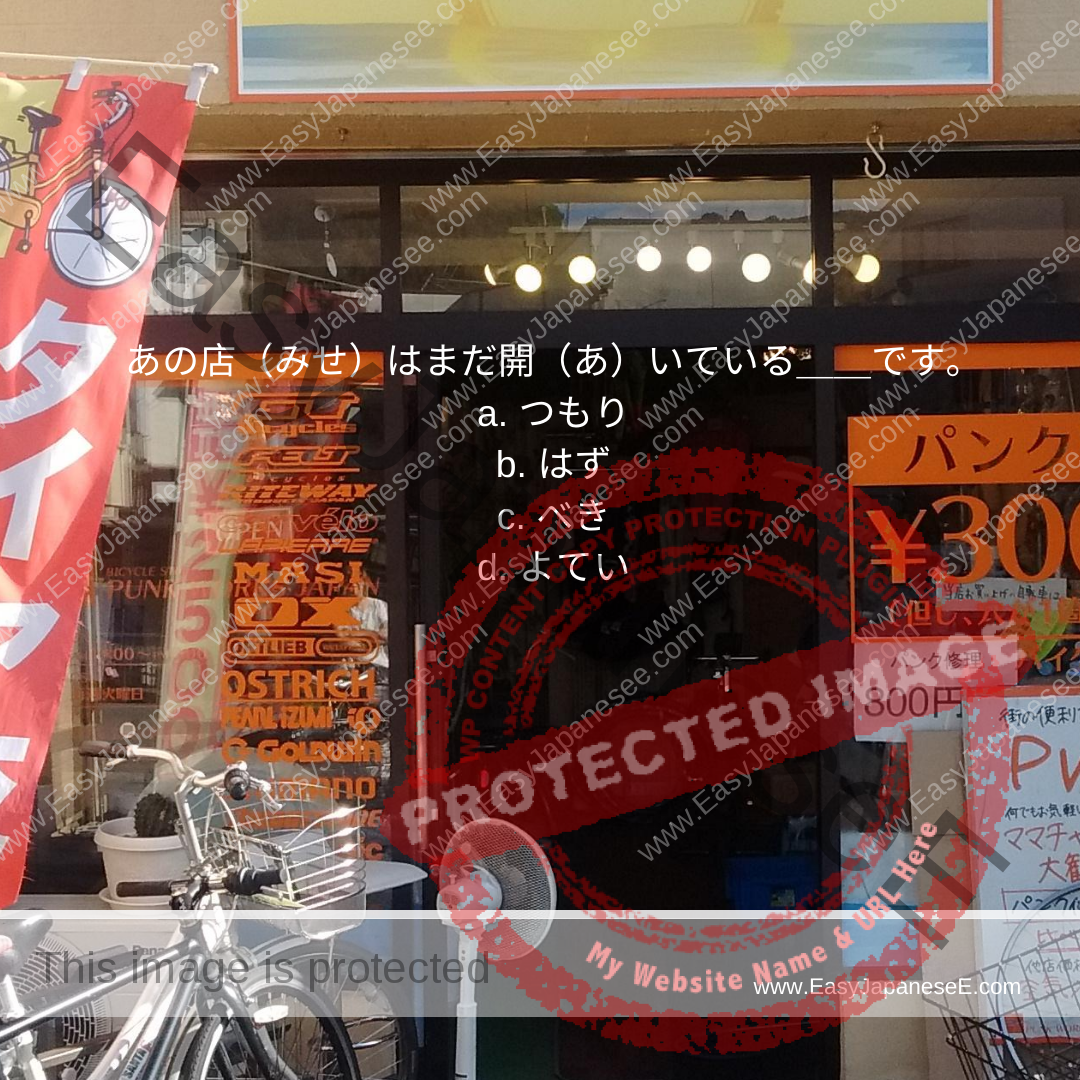
あの店はまだ開いている__です。
a. つもり
b. はず
c. べき
d. よてい
What I want to say is “the shop ought to be still open.”
All choices are used to describe a future intention or plan but b. はず is the best choice here.
a. つもり describes the speaker’s intention. Here the speaker’s intention does not enter into the fact the shop stays open, so a is not correct.
c. べき is close to the English “should”, so べき is not completely wrong here, but if you use べき, it sounds a bit judgemental and it sounds like you are accusing the shop if it’s not open, so I would avoid using it.
d. よてい describes a schedule in the future, so it is not suitable to predict if it is open now or not.
More examples of はず:
<verbs>
たいふうが きているから、あしたは あめが ふるはずだ。
As a typhoon is approaching, it ought to rain tomorrow.
あした にもつが とどくはずだ。
The parcel should arrive tomorrow.
せんせいは しっているはずだ。
The teacher should know it.
カナダでは いまごろ ゆきが ふっている はずだ。
It should be snowing in Canada around this time of the year.<いadjective>
イタリアではピザがおいしいはずだ。
Pizza should be tasty in Italy.
いまが きせつだから イチゴが やすい はずだ。
As they are in season now, strawberries should be cheap.
スピルバーグが かんとくだから、あのえいがは おもしろい はずだ。
As Spielberg is the directer, that movie should be entertaining.<なadjective> – Don’t forget to add な
いまが きせつだから、 イチゴは しんせんな はずだ。
As they are in season now, strawberries should be fresh.
しょうがっこうの テストだから、かんたんな はずだ。
As this is a primary school test, it should be easy.<noun> – Don’t forget to add の
ジョンさんの おかあさんは せんせいの はずだ。
John’s mother should be a teacher.
ジョンさんに このまえ あったときは、こうこうせいだったから、いまは だいがくせいの はずだ。
When I say John last time, he was a high school student, so he should be a uni student now.

